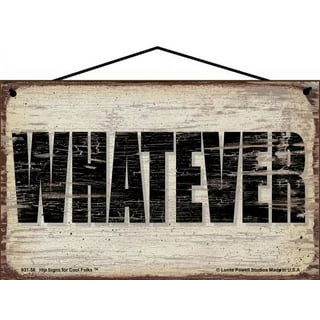
To listen to today’s reflection as a podcast, click here
What are the most irritating words or phrases used in casual conversation?
A pair of American institutions of higher education actually keep track of such things.
Lake Superior State University in Sault Ste. Marie, Michigan, annually publishes a list of words that most people are ready to consign to the conversational trash heap. Last year’s winner (that is, loser) was “hack,” followed closely by “iconic,” “cringeworthy,” and “at the end of the day.”
Meanwhile, Marist College in Poughkeepsie, New York, is famous for its own annual survey of America’s most annoying words.
Your fellow citizens are apparently seriously tired of hearing “it is what it is,” “like,” “woke,” and “you know.” But the all-time most annoying word, which came in first for 11 consecutive years beginning in 2009, is “whatever.”
Ever since the 1995 movie Clueless turned “whatever” into something of a national phenomenon, it seems to have exerted an ever-accelerating power to annoy.
Depending on its context, “whatever” can be an expression of passivity (“I’m fine with anything”), cynicism (“it doesn’t matter what I think”), disinterest (“Do I look like someone who cares?”) or contempt (“as if I remotely care what you think”).
In many regards, America has become the World of Whatever. The dawn of each new week brings little assurance that we will face fewer controversies and tragedies than the previous seven days.
Many people feel a vague sense of hopelessness about where history is taking us. Maybe all we ever get is a series of disconnected moments.
A character in the movie Say Anything explains, “You get to be thinkin’ about how short life is, and how maybe everything has no meaning, because you wake up and then you’re fryin’ burgers, and you’re like sixty or seventy, and then you check out, you know, and what are you doing, and I just don’t need to be thinkin’ about those kind of things.”
Or as one teenager says to another in the film River’s Edge: “I’ve got this philosophy. You do stuff. Then it’s done. Then you die.”
Whatever.
The New Testament steers us in a different direction.
In a single spectacular verse that features six “whatevers,” the apostle Paul encourages us to fix our minds on a particular set of data points:
“Finally, brothers and sisters, whatever is true, whatever is noble, whatever is right, whatever is pure, whatever is lovely, whatever is admirable – if anything is excellent or praiseworthy – think about such things” (Philippians 4:8).
Every morning we can occupy our minds with whatever makes headlines and inspires insecurity – inflation, Congressional gridlock, drone attacks in Ukraine, social media rants, and political chaos.
Or we can choose to believe that the cosmos is ruled by a good and gracious God who isn’t fazed by the “breaking news” interruptions on our TVs or smartphones.
That means the “whatevers” of Philippians 4:8 really matter.
Forever.
And not just whenever, however, or wherever life happens to take us today.
